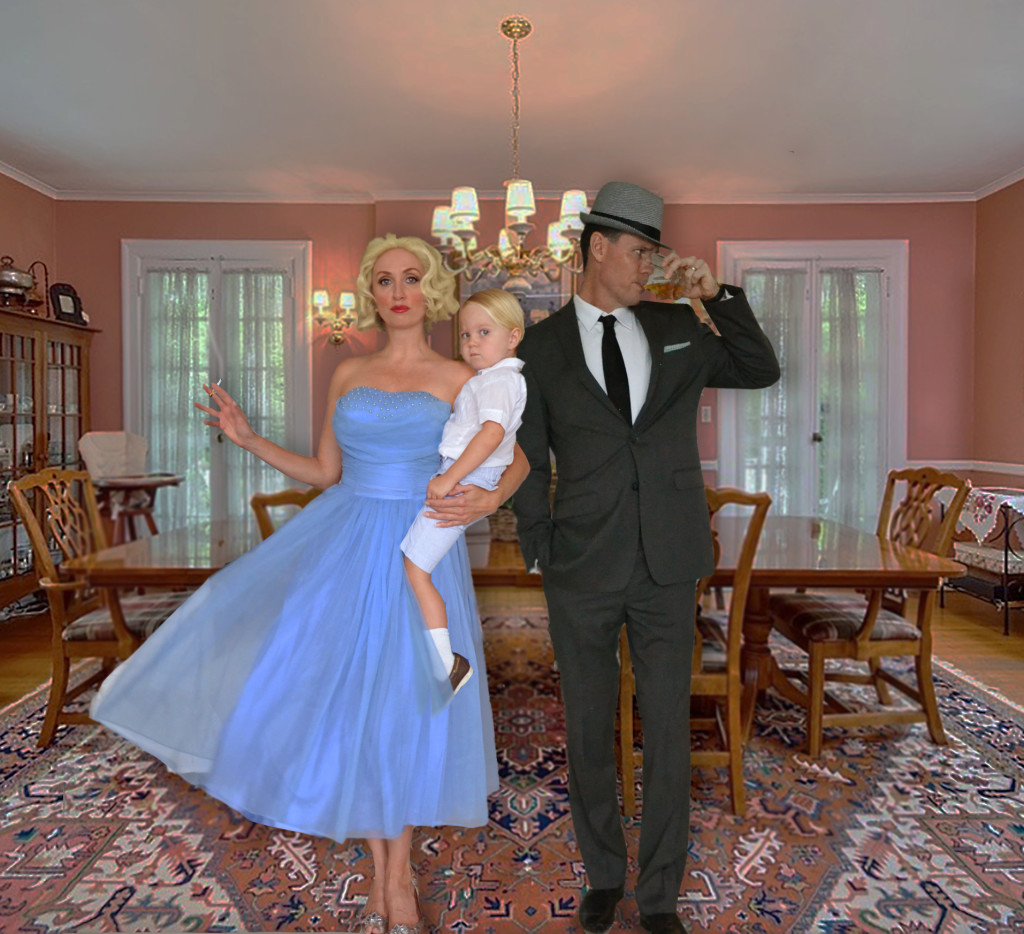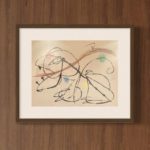 artnet Gallery Network
artnet Gallery Network
How the Husband-and-Wife Duo Behind Robin Rile Fine Art Have Made a Name for Themselves by Staying Ahead of the Curve
The company and advisory specializes in art by Post-war masters.
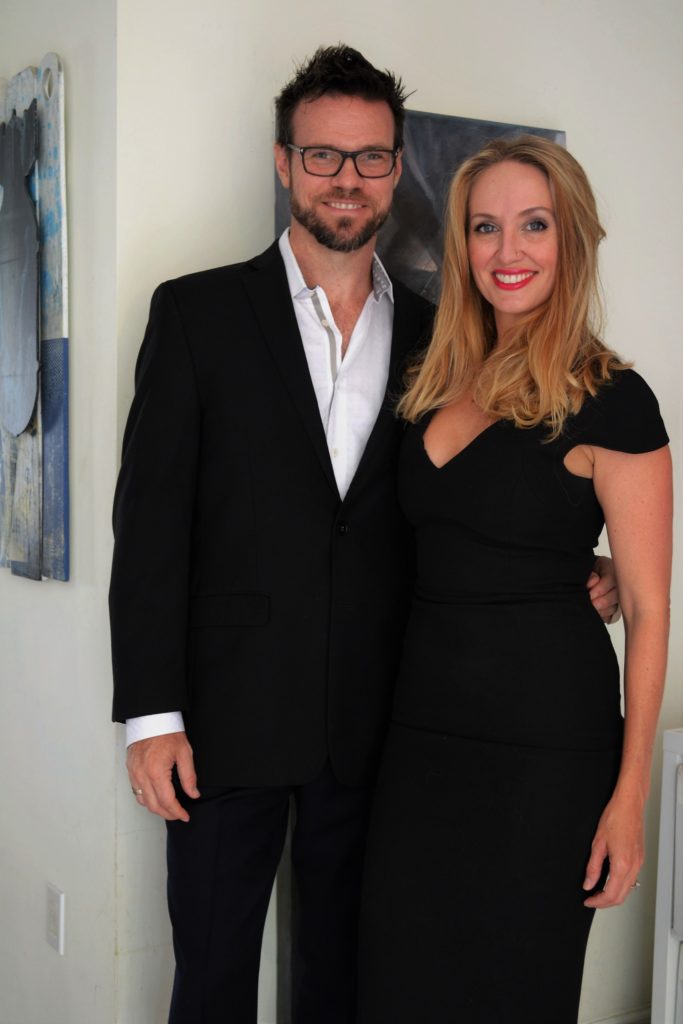
______________________________________________________________
In his first gallery job, Reed Horth was told he couldn’t have a computer.
“The owners of the gallery thought that I would play video games,” Horth says, laughing. “It was the craziest thing. I told them, ‘Look, I need this to communicate with clients.’ And they said, ‘Why don’t you just use the fax machine?’”
“Have you ever tried to fax a picture of art? It looks horrible!”
Today, Horth co-owns his own art brokerage business with his wife, Kat Barrow-Horth, specializing in Post-war masters such as Joan Miró, Pablo Picasso, Andy Warhol, and others. Called Robin Rile Fine Art, the Miami-based business offers a variety of art world services, from consultation on art sales to private and public curation. They have a small, appointment-only gallery space and even offer editorial content and lectures for local art institutions.
For them, the computer anecdote is a testament to just how far they’ve come in the industry—and a reminder to always keep an open mind to new ways of doing things.
“Because we’ve been in this business as long as we have, we’ve seen a total sea change in the way art is bought and sold, even from a decade ago,” Kat says. “Before, you had to have a gallery to do that, and now so much of what we do is done digitally. We sell art over Whatsapp, Instagram, text message, you name it. We’ll communicate through smoke signals if we have to.”
The proof, as they say, is in the pudding. Prior to this conversation, the duo had just sold a $1 million work of art over one of these platforms.
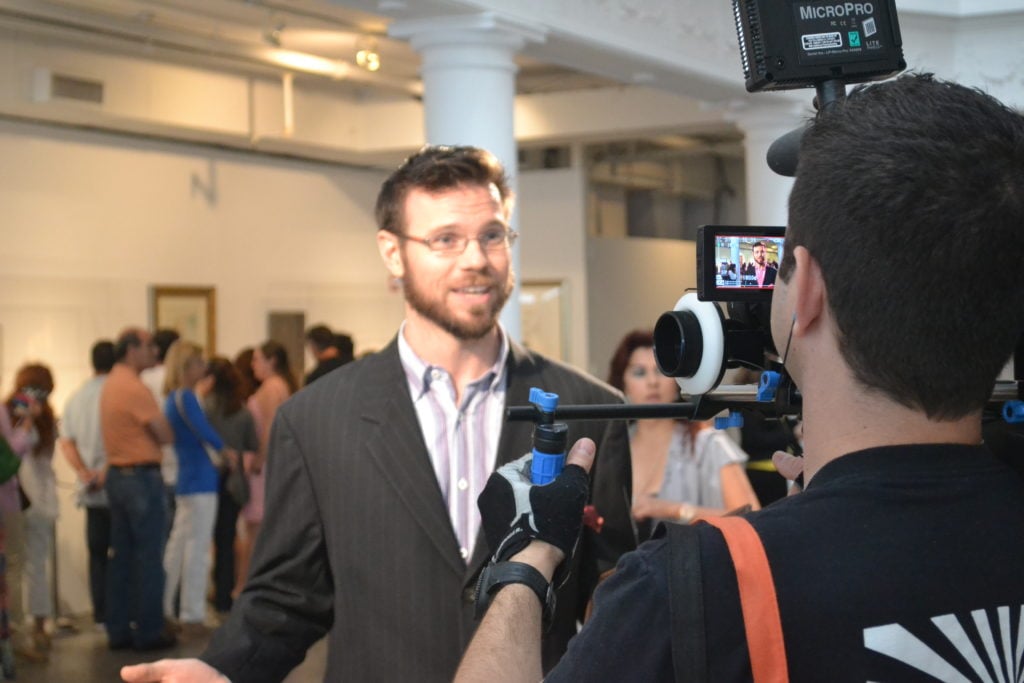
Reed Horth giving an interview at the “Dali Miami” exhibition, 2012. Courtesy of Robin Rile Fine Art.
Comic books were Reed’s gateway into art. He sold his personal collection to pay for tuition at the University of Florida, where he studied art history and journalism. After graduating, he entered the art world, managing four different Florida galleries over the span of 12 years.
During that time, he saved up and bought a computer and began compiling information from gallery sales and market research, creating the database that would serve as the foundation of his business years later. It also helped him with sales at the time. “I gained expertise, finding out the information necessary to edify someone a state or country away.”
Kat went to Tulane, where she studied studio art. She moved into interior design in the years thereafter, learning to “speak the same language as curators, designers, architects, and developers,” she says.
The experience would come to serve her well in the gallery sector. “My mind is already hardwired to consider the logistics—the necessity of timeliness, of making sure the art falls within the budget, knowing how much the framing and additional insurance is going to cost, how much the shipping and installation will cost,” she says. “I think that’s a distinct advantage that my design background gave me.”
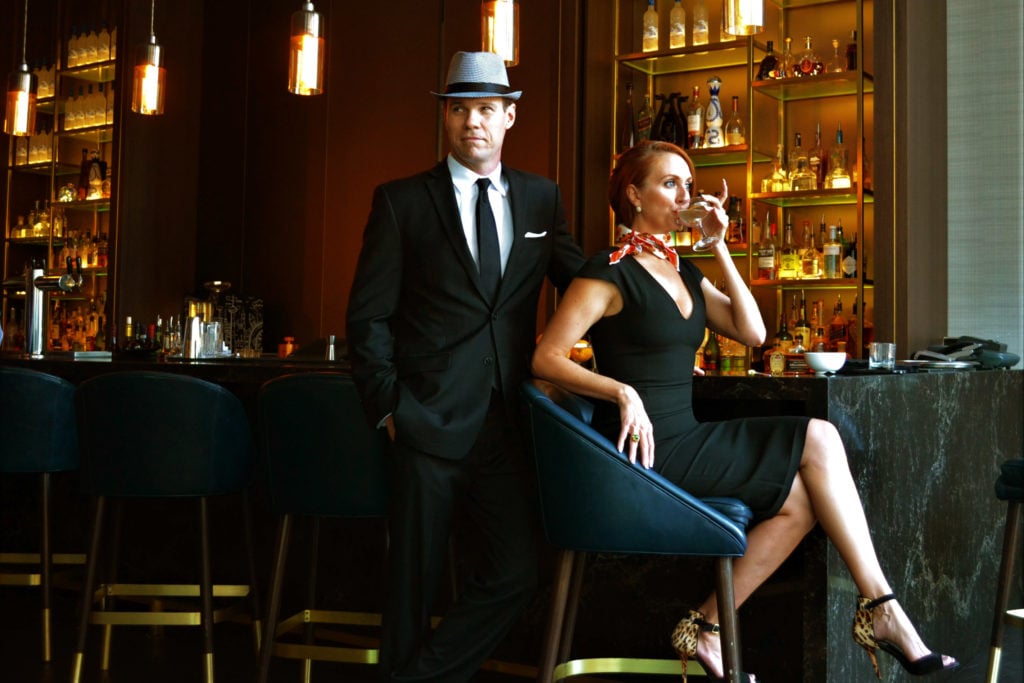
Reed Horth and Kat Barrow-Horth dressed up as “Mad Men” for Halloween.
Reed and Kat opened Robin Rile in 2008. (The name is a tribute to Reed’s father and grandfather—Robin and Rile, respectively—both of whom are military veterans.) It was a hard year to launch a business after the national economic collapse just months earlier. However, the duo—unmarried at that point—made it through. In retrospect, they consider the timing to have been a blessing in disguise. It taught them to keep the business “lean and mean.” It also allowed them to secure work by big-name artists on the cheap.
Eleven years later, Robin Rile is as prosperous as ever—a staple in the Miami art scene. It’s also grown a great deal according to the strengths of its founders: Reed works on investment-level art—“the original Warhols, Dalís, Picassos”—while Kat works with contemporary art, “putting together and curating collections for commercial spaces and private residences.”
It’s easy to see why the husband-and-wife duo would be successful. They tease one another and feed off each other’s energy and literally finish each other sentences. And just as they’ve always done, they’ve kept an open mind, allowing their business to adapt to technological advancements, market trends, and personal ups-and-downs, while always putting their marriage first.
“As business owners and spouses, we have to remain facile,” Reed says. “We have to be open to new ways of doing things.”
Follow artnet News on Facebook
